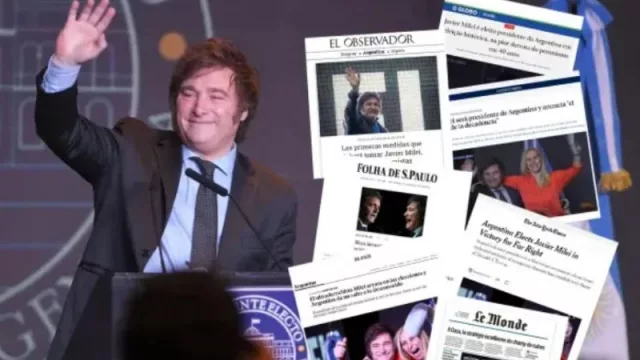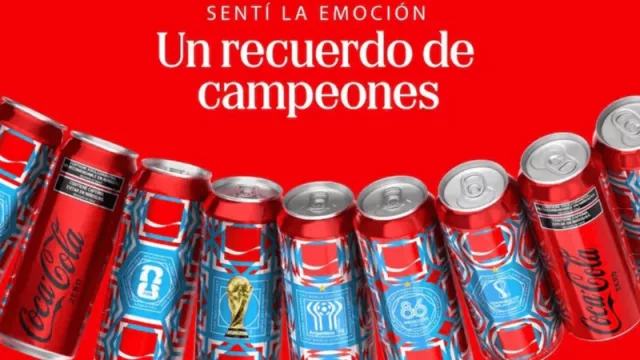Recent data from a survey by Opina Argentina reveals that Milei's popularity has reached unprecedented levels, coinciding with signs of economic recovery. This article explores the factors driving this growth and its implications for the Argentine political landscape. Many fail to acknowledge that Argentina, prior to Milei's presidency, was in a state of near-total decline, grappling with an unproductive state apparatus, exorbitant tax burdens, widespread corruption, bureaucratic excess, and inefficiency across public institutions at all levels (national, provincial, and municipal). Argentina faces a significant cultural challenge: understanding that politics, the state, and public employment must embody excellence in every sense. Moreover, these systems must be useful, concrete, practical, auditable, optimized, and conducive to the wealth generation of the nation's constituents—individuals who truly create a nation’s wealth, including families, businesses, startups, genuine employment, industries, commerce, savings, investment, capital, and culture.
Summary and Tips
Javier Milei's first year in office has been characterized by growing popularity and renewed optimism among Argentines regarding the nation's economic future. As the president concludes this phase, it is clear that his approach and implemented measures resonate positively with the populace. This shift in perception not only affects his political capital but also redefines the electoral landscape ahead of upcoming elections. The current situation invites citizens to reflect on their role in shaping the country's future.
The Economic Revolution Under Milei's Mandate
Sustained Popularity Amidst Crisis
Consistency and common sense, transcending any party affiliation, are crucial for the organization, cleaning, and administration of the state, public spending, and functionality.
Key Points:
-
Popularity Growth: Javier Milei's approval rating has reached 53%, a 7-point increase since October.
-
Economic Optimism: 52% of Argentines believe the current situation has improved compared to the previous year, and 52% expect conditions to continue improving.
-
Regional Differences: Support for the government is stronger in Greater Buenos Aires, while Patagonia exhibits more moderate optimism.
-
Transformations in Public Safety
Javier Milei: A Year of Radical Transformations in the Argentine Presidency
Javier Milei’s inauguration on December 10, 2023, marked a historic milestone as he became the first economist to hold the presidency in Argentina. However, this achievement is merely one of the many transformations he has initiated during his first year in office. Despite his limited prior political experience, Milei has managed to position himself as a central figure in both national and international politics, leveraging his disruptive style.
Relevant Data:
In April, the year-on-year inflation rate soared to 290%, but by October, it had dropped to 107%. The Argentine peso, traditionally volatile, has begun to stabilize, with the parallel dollar (blue market) also decreasing, resulting in a minimal gap that has fostered confidence in the markets.
The Dark Side of Argentina Still Persists:
Poverty:
Poverty in Argentina poses a significant challenge, despite remaining alarmingly high in absolute terms. Historically, Argentina has been a country rich in resources with a high Gross Domestic Product (GDP). This economic legacy dates back over a century, when Argentina was recognized as one of the world's most prosperous nations.
Javier Milei assumed the presidency at a critical juncture, facing monthly inflation rates exceeding 25%. "The challenge was monumental," says economist Gabriel Rubinstein, "but Milei's radical approach has yielded surprising results." In just one year, inflation has been reduced to 2.7% monthly, a feat that has garnered international attention. This marks a crucial step in reversing a century-long decline in Argentina.
However, it is essential to acknowledge that the persistent poverty in the country has a clear culprit: the state-centric policies implemented throughout history. This responsibility lies not only with traditional political parties but also with various ideological currents, including the left and Peronism. The failure to accept and reflect on this reality has enabled the situation to persist, perpetuating a cycle of denial and distortion that hinders progress.
If this reality is not approached with critical and self-reflective analysis, Argentina will struggle to move toward effective solutions, regardless of who is in power—be it Javier Milei or another leader. Improving living conditions across the country, from towns and municipalities to provinces, hinges on a paradigm shift in economic and social policy.
It is imperative that the stakeholders involved—unions, business leaders, politicians, journalists, and civil society at large—reassess their stance on statism. An uncritical defense of this approach, without rigorous and coherent analysis, not only perpetuates economic stagnation but also contributes to the decline of the country's productivity and competitiveness. This phenomenon has been evident over the past century, as corruption, poverty, and ideological fanaticism have relentlessly increased.
Therefore, the key to reversing this situation lies in a genuine commitment to self-criticism and the pursuit of evidence-based solutions. Only in this way can a more prosperous and equitable future be constructed for all Argentinians.
A Sustained Growth in Milei's Image: Shouldn't This Be True for Almost Everyone?
"The first year of Javier Milei's presidency concludes with a significant rise in his image," states the report from Opina Argentina. With a 53% approval rating, the president has achieved a 7 percentage point increase since October, making him the leader with the highest positive differential compared to his predecessors. The survey, conducted between December 1st and 4th, analyzed 1,325 cases with a margin of error of +/- 2.60% and a confidence level of 95%. This surge in popularity is particularly noteworthy in a context where the economy is beginning to show signs of recovery.
Regardless of the political ideology one adheres to—be it libertarian, right-wing, left-wing, or stemming from any citizen, whether Argentinian, Venezuelan, American, or Brazilian—it is crucial to question the defense of regimes that perpetuate harmful practices such as irresponsible monetary issuance, political corruption, and excessive state spending on unnecessary infrastructure. These issues are not merely inherent to a specific country or political system; they directly impact the quality of life for citizens and the economic stability of nations.
It is imperative that citizens, instead of passively accepting the decisions of those managing our resources, demand a more efficient and effective approach to public administration. The management of our contributions should not be viewed as a burden, but rather as an opportunity to build a framework that fosters freedom, prosperity, and security. The pursuit of a favorable environment for investing, working, educating, trading, and mobility is essential for the development of any society.
It is time for all of us to organize and demand change, setting aside partisan fanaticism, outdated ideologies, and militancy, to transform how public resources are managed. This transformation should be oriented toward creating policies that genuinely benefit the population and promote a sustainable and prosperous future for all.
The responsibility falls on us as citizens to demand a transformation that prioritizes collective well-being over individual interests.
Economic Optimism: A Shift in Perspective
"52% of respondents believe that Argentina is in a better position than it was a year ago," states the report. This change in perception aligns with the stabilization of the dollar and a reduction in inflation, contributing to an atmosphere of optimism. "Expectations for the future are more positive than ever," adds the consulting firm, highlighting that 52% of those surveyed are confident that conditions will improve in the coming year.
Regional Differences in Expectations
The data reveals a clear regional variation in the perception of support for Milei and his administration. In the interior of Buenos Aires, optimism is palpable, with 54% backing the government. In contrast, Patagonia shows lower figures, reaching only 31%. "These differences reflect the diversity of opinions that exist in the country," comments a political analyst.
IG: @infonegociosmiami
The Opposition Weakens
The survey also indicates a weakening of the opposition, with 37% of Argentinians identifying as opponents. This contrasts with the growth of support for the ruling party, which has increased by 6 points since October. "The political landscape is changing, and the consolidation of support for Milei is a phenomenon that cannot be ignored," concludes the report.
The Image of Opposition Leaders
As Milei strengthens his image, key opposition leaders such as Cristina Kirchner and Mauricio Macri face negative approval ratings above 60%. "This decline in the perception of opposition figures is a clear indicator of a shift in the Argentine electorate," asserts a political scientist.
Public Safety: A Radical Change
One of Milei’s most notable commitments has been to reduce insecurity, particularly in Rosario, which had become the "murder capital" due to drug-related violence. "Security Minister Patricia Bullrich has implemented effective strategies that have led to a drastic reduction in violence," notes political analyst Juan Carlos López.
Relevant Data:
-
Deaths in Rosario have significantly decreased, restoring peace for many families.
-
Protests with roadblocks, known as "piquetes," have notably diminished, easing traffic in the city center.
Illustrative Example: Residents of Rosario have expressed relief, indicating that for the first time in years, they can go out without fear.
The reduction of "piquetes," thefts, and insecurity has improved the quality of life in many cities.
-
Infonegocios NETWORK: 4.5 million Anglophones and Latinos united by a passion for business.
-
Subscribe for free to receive the most strategic, agile, and valuable insights at: https://infonegocios.miami/suscribite-al-newsletter
-
Contact Infonegocios MIAMI:
[email protected] or [email protected]












Tu opinión enriquece este artículo: